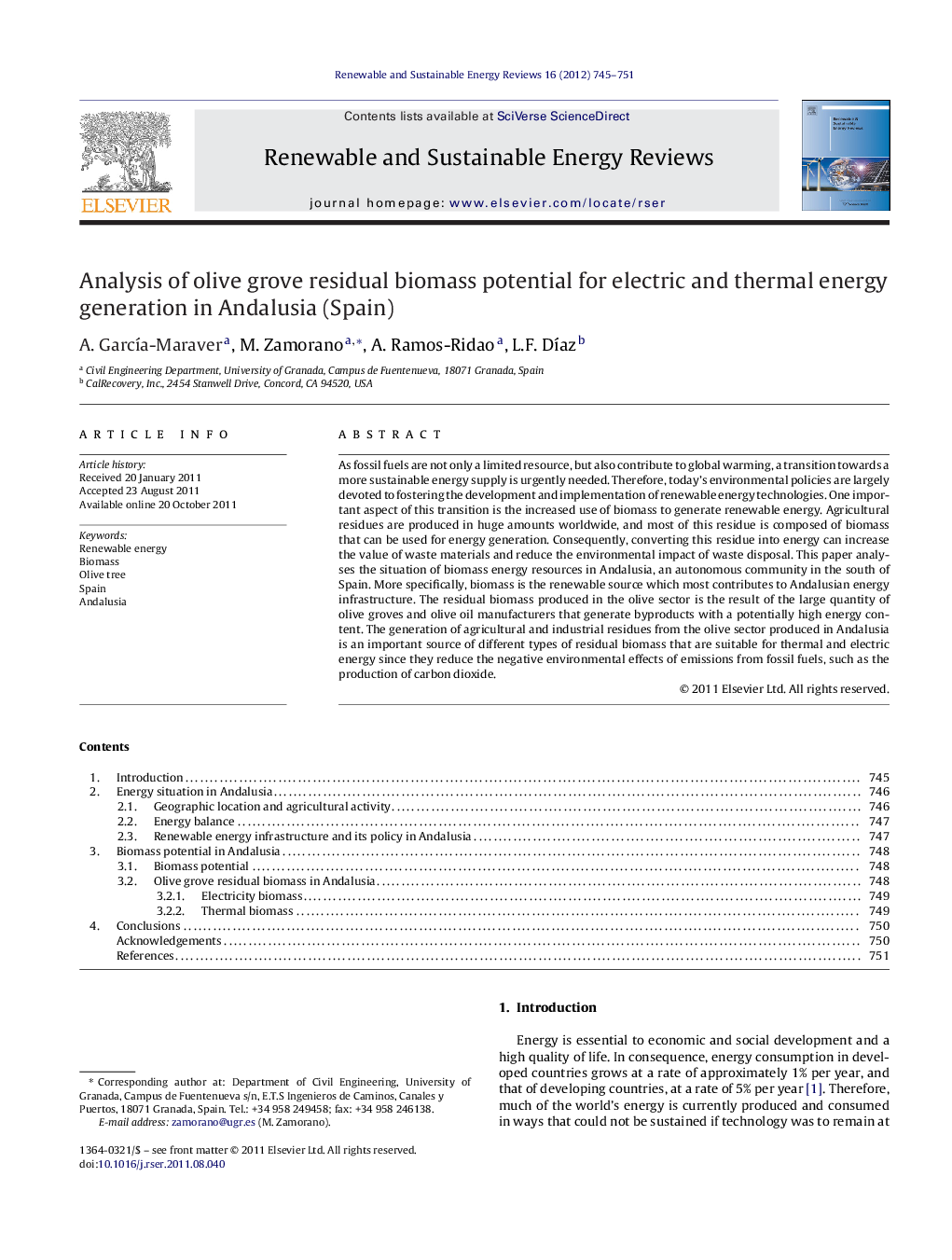| کد مقاله | کد نشریه | سال انتشار | مقاله انگلیسی | نسخه تمام متن |
|---|---|---|---|---|
| 1751299 | 1018411 | 2012 | 7 صفحه PDF | دانلود رایگان |

As fossil fuels are not only a limited resource, but also contribute to global warming, a transition towards a more sustainable energy supply is urgently needed. Therefore, today's environmental policies are largely devoted to fostering the development and implementation of renewable energy technologies. One important aspect of this transition is the increased use of biomass to generate renewable energy. Agricultural residues are produced in huge amounts worldwide, and most of this residue is composed of biomass that can be used for energy generation. Consequently, converting this residue into energy can increase the value of waste materials and reduce the environmental impact of waste disposal. This paper analyses the situation of biomass energy resources in Andalusia, an autonomous community in the south of Spain. More specifically, biomass is the renewable source which most contributes to Andalusian energy infrastructure. The residual biomass produced in the olive sector is the result of the large quantity of olive groves and olive oil manufacturers that generate byproducts with a potentially high energy content. The generation of agricultural and industrial residues from the olive sector produced in Andalusia is an important source of different types of residual biomass that are suitable for thermal and electric energy since they reduce the negative environmental effects of emissions from fossil fuels, such as the production of carbon dioxide.
Journal: Renewable and Sustainable Energy Reviews - Volume 16, Issue 1, January 2012, Pages 745–751